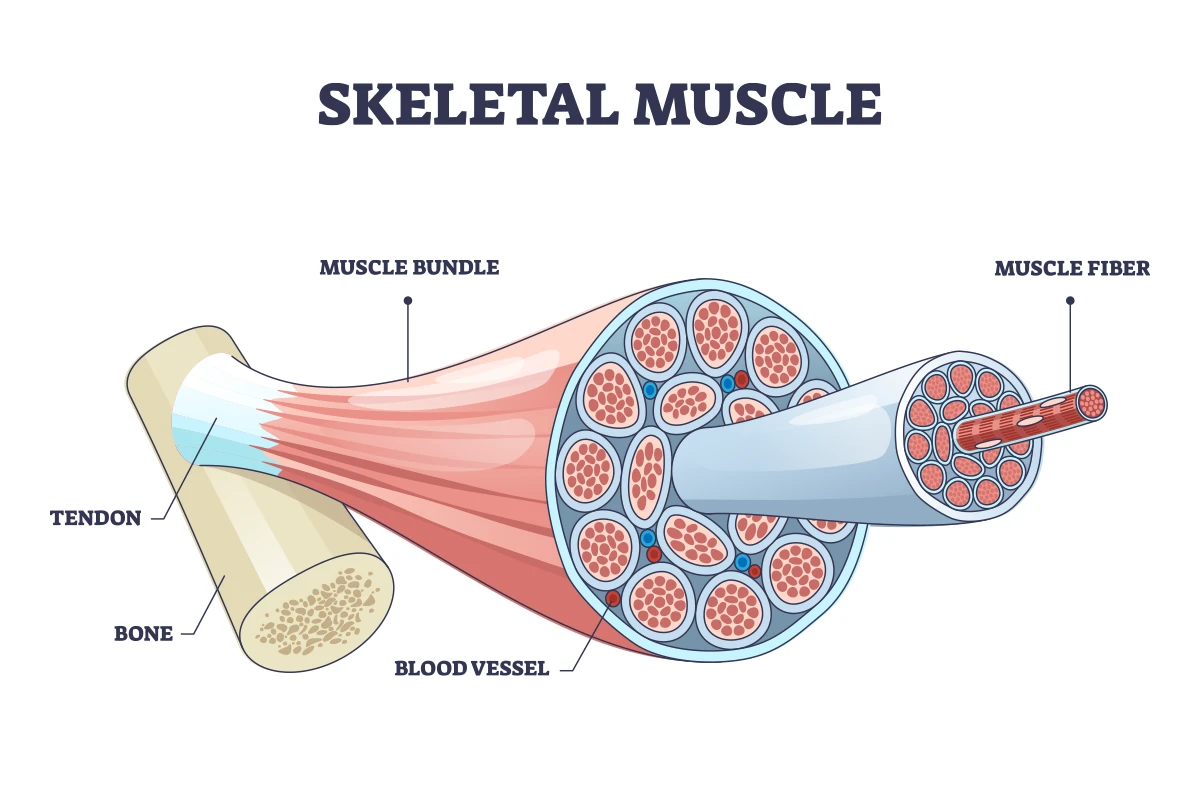Myopathy (muscle disorders)
Find a neuro specialistMyopathy is a general term for several conditions and diseases that cause muscle weakness in skeletal muscles (muscles that are attached to your skeleton). Each type of myopathy has a different cause and may have different symptoms.

Types of myopathy
Muscle diseases (myopathies) come in many different forms. Each form can be categorized as either an inherited myopathy or an acquired myopathy.
Types of inherited myopathy
When you’re born with a type of myopathy, it’s called an inherited myopathy. Inherited myopathies are caused by mutated genes that you inherit from one of your parents.
Among myopathies that are inherited, there are these types:
- Mitochondrial myopathy: Caused by mutations in a part of gene cells called mitochondria that produces energy for your body. Causes muscle weakness and problems with the brain, heart or gastrointestinal system.
- Congenital myopathy: Often associated with developmental delays with crawling or walking. Commonly affects all the skeletal muscles and doesn’t get worse over time.
- Muscular dystrophy myopathy: Involves weakness of skeletal muscles that gradually gets worse.
- Metabolic myopathy: Usually causes periods of muscle weakness that may be random. However, these times of weakness often start because of exercise or using the muscles in some way.
Types of acquired myopathy
Acquired myopathy is a condition that develops later in life and isn’t inherited from a parent. Some examples of acquired myopathies and their causes are:
- Autoimmune myopathy: Caused by an autoimmune condition.
- Dermatomyositis: Rare muscle disease that presents with a skin rash followed by or at the same time as progressive muscle weakness.
- Toxic myopathy: Caused by consumption of alcohol or some medications.
- Endocrine myopathy: Caused by problems with your endocrine glands, which produce hormones. These myopathies may be caused by diseases that affect the thyroid gland or adrenal gland.
- Infectious myopathies: Caused by bacterial, viral, parasitic or fungal infections.
- Critical illness myopathy: Affects the muscles used for breathing and develops while a person is in an intensive care unit.
Myopathy symptoms
Since there are many types of myopathy, there are several ways symptoms may appear. Muscle weakness caused by myopathy often occurs in the upper arms, shoulders and thighs. Muscular dystrophy myopathies have a different pattern because their muscle weakness often begins in the face, hips and shoulders.
Some common symptoms that apply to many types of myopathies are:
- Muscle stiffness
- Muscle spasms
- Low energy
- Being easily tired, especially after being active
These and other symptoms may make it hard to take care of yourself with what are known as activities of daily living, such as getting dressed, personal hygiene tasks, shopping, making meals, or getting out of a bed or chair.
Myopathy complications
Congenital myopathies may have fatal complications such as cardiomyopathies (heart muscle disease), sepsis, respiratory failure or kidney failure. Other potential complications are:
- Hypertension
- Impaired movement
- Irreversible muscle damage
- Cataracts
- Abnormal heart rhythms
Myopathy diagnosis
When you see a doctor about your potential symptoms of myopathy, they’ll perform a physical and test your reflexes. They may recommend a variety of tests to decide on a diagnosis. They’ll need to both rule out conditions that don’t apply and confirm the condition you have.
Your doctor may recommend imaging tests such as MRI and CT. Other tests they may recommend are:
- Genetic testing: Uses samples of blood, saliva or urine to find genetic biomarkers that indicate disorders.
- Lumbar puncture: Extracts cerebrospinal fluid from your spine for testing.
- Nerve or muscle biopsy: Removes a small sample of a nerve or muscle for testing.
- Electromyography: Measures the electrical activity going on in your muscles.
From the combination of information gathered, your doctor will determine what’s causing your symptoms.
Myopathy treatment
Most types of myopathies are treated with medications, physical therapy and treatment for any underlying conditions.
Physical and occupational therapies are important parts of myopathy treatment. Therapists will help you increase muscle strength, improve flexibility and stay as mobile as possible. Occupational therapists work with you to create strategies for managing activities of daily living.
Medications for myopathy may include drugs to improve muscle function, reduce inflammation, or treat underlying conditions or infections. In the case of autoimmune myopathy, treatment may include immunosuppressant drugs to moderate the immune response. Steroids may be used to reduce inflammation.
Your treatment will be tailored to your situation and needs. Working with your doctor will help you navigate myopathy treatment and maintain your quality of life.
Get care
We help you live well. And we’re here for you in person and online.